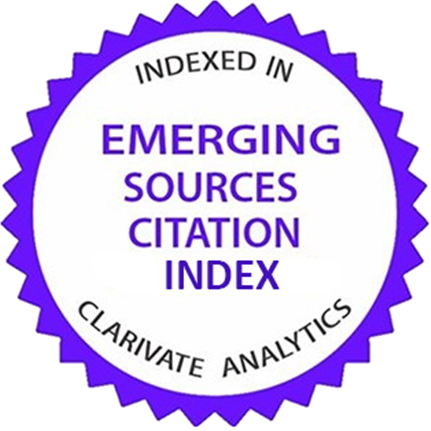 Acknowledgment to the Reviewers of Research on World Agricultural Economy in 2025
Acknowledgment to the Reviewers of Research on World Agricultural Economy in 2025
Policy Approaches towards Agricultural Resilience: Insights and Strategies
Submission Deadline: November 30, 2024
Guest Editors:
Sriram Divi 
 , Public Administration, Department of Social Science School of Liberal Studies (SLS), Pandit Deendayal Energy University (PDEU), Gandhinagar, Gujarat, India
, Public Administration, Department of Social Science School of Liberal Studies (SLS), Pandit Deendayal Energy University (PDEU), Gandhinagar, Gujarat, India
Dhyani Mehta 
 , Economics, Department of Social Science School of Liberal Studies (SLS), Pandit Deendayal Energy University (PDEU), Gandhinagar, Gujarat, India
, Economics, Department of Social Science School of Liberal Studies (SLS), Pandit Deendayal Energy University (PDEU), Gandhinagar, Gujarat, India
Special Issue Information
Agriculture has played a pivotal role in development of human civilization. Moreover as per the International Development Association rightly acknowledge that it is the most powerful tool to end extreme poverty and aligned with economic prosperity. As per the World Bank data the agriculture sector globally contributes to 4% of the global GDP and in some developing countries it accounts of 25% or more of their country GDP. With increase in the global population which predicted to be 9.2 billion (bn) by 2050 (Silva, 2018) which would have a cascading effect on food demand and agriculture production as 59% to 102% and 60% to 70% respectively (Pawlak & Kolodziejcz, 2020).
In spite of agriculture having an economic growth potential and its other significance still have major risk of climate change, economic fluctuations, and evolving market demands. Thus, building resilience in agriculture is crucial for ensuring food security, sustainable livelihoods, and environmental sustainability.
This call for research contributions aims to contribute to the existing literature by exploring how the new innovative policy approaches helps in enhance agricultural resilience, offering insights and strategies from a multidisciplinary perspective. We seek special understanding on interplay between state finance, collaborative efforts in agriculture examine the varied aspects such as the agriculture insurance, direct benefit schemes, financial inclusion, digitalization, soil testing, sustainable water management in agriculture, arrangements, multiple stakeholders, regulations and many more. The basic idea is to enhance the dynamic arrangements at different levels of governance, community and individual efforts and provision in different context. This special call further wants to highlight the policy dynamism has shaped over the years particularly with collaborative, evidence based policy, community driven approaches, and how co-creation has been shaping policy perspective across global to create agriculture resilience.
Thus, by delving into the interplay between the public policy, local arrangement, community driven approaches, and policy implementation, we want to gain valuable insights into responsiveness, sustainable practices and accountability of policies implied in dynamic context. This issues bestow towards policies for agriculture sustainability and resilience both empirical and theoretical aspects in different context which are not usually investigated in presence of centralized institutions or with in the formal space of public policy.
We invite researchers, policymakers, and practitioners to submit original research articles, reviews, case studies, and policy analyses that address various dimensions of agricultural resilience. The following are the sub-themes, but are not limited to:
Topics:
- Government Prospectives on Agriculture and Budget Allocations: Analyse the governmental approaches, focal points, and financial distribution plans intended to bolster agricultural progress and guarantee economic stability in the industry.
- Agriculture Insurance Policies and Schemes: Exploring insurance schemes that mitigate risks for farmers and promote long-term resilience.
- Financing Mechanisms: Investigating financial instruments and strategies that support resilient agricultural practices.
- Sustainable Agricultural Practices:Policy frameworks that encourage sustainable farming methods and resource management.
- Climate Change Adaptation: Policies that help agriculture adapt to and mitigate the impacts of climate change.
- Technological Innovations: The role of technology in enhancing agricultural resilience and the policy support required.
- Market Access and Value Chains: Strategies to improve market access and strengthen agricultural value chains.
- Integration of Agriculture and Allied Sector: The aim is to combine agriculture with related industries including horticulture, cattle, fisheries, agro-tourism, and agroforestry in order to improve production, sustainability, and rural livelihoods.
- Case Studies: Successful examples of policy interventions that have enhanced agricultural resilience in different regions.
- International Perspectives: Comparative analyses of agricultural resilience policies from various countries.
- Stakeholder Engagement: The role of stakeholder participation in shaping effective resilience policies.
Submission Guidelines:
- Manuscript Types: We accept research articles, review papers, case studies, and policy analyses.
- Manuscript Length: Submissions should not exceed 6,000 words, including references.
- Formatting: Manuscripts should follow the Research on World Agriculture Economy (RWAE) formatting guidelines, available here.
Published Papers
Sirram Divi, Ganta Durga Rao, Saurab Anand
Article ID: 1362 DOI:https://doi.org/10.36956/rwae.v6i1.1362
Venkat Ram Reddy Minampati, Alok Kumar Gaurav, Pradeep Malik, Saumya Jhaveri
Article ID: 1673 DOI:https://doi.org/10.36956/rwae.v6i2.1673
Assessing the Role of Kisan Rail on Agri-Supply Chain in India: Insights from Mixed-Method Research
Abhishikt Chauhan, William Nunes
Article ID: 1726 DOI:https://doi.org/10.36956/rwae.v6i2.1726
Online ISSN: 2737-4785, Print ISSN: 2737-4777, Published by Nan Yang Academy of Sciences Pte. Ltd.



